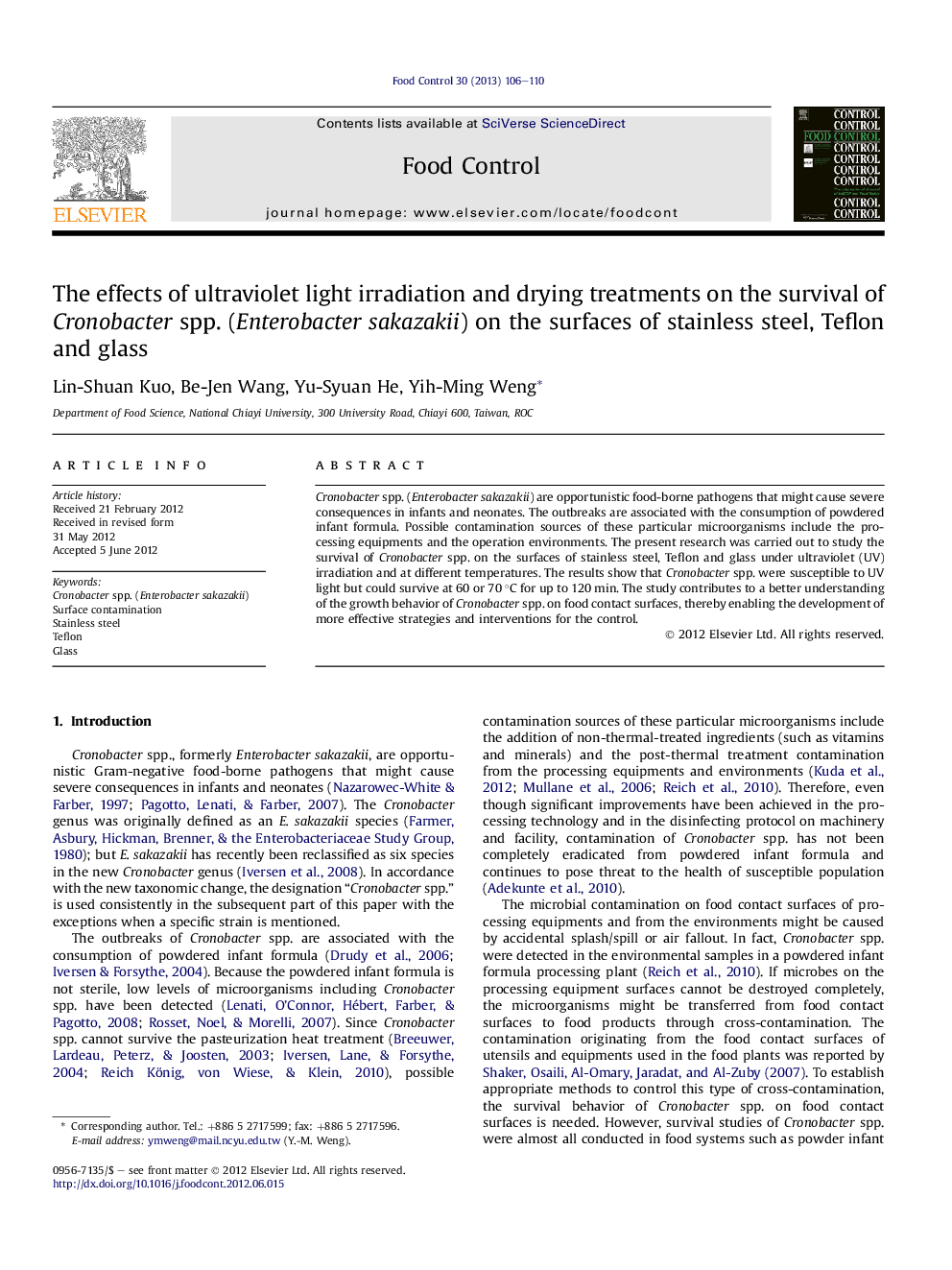| Article ID | Journal | Published Year | Pages | File Type |
|---|---|---|---|---|
| 6393395 | Food Control | 2013 | 5 Pages |
Cronobacter spp. (Enterobacter sakazakii) are opportunistic food-borne pathogens that might cause severe consequences in infants and neonates. The outbreaks are associated with the consumption of powdered infant formula. Possible contamination sources of these particular microorganisms include the processing equipments and the operation environments. The present research was carried out to study the survival of Cronobacter spp. on the surfaces of stainless steel, Teflon and glass under ultraviolet (UV) irradiation and at different temperatures. The results show that Cronobacter spp. were susceptible to UV light but could survive at 60 or 70 °C for up to 120 min. The study contributes to a better understanding of the growth behavior of Cronobacter spp. on food contact surfaces, thereby enabling the development of more effective strategies and interventions for the control.
⺠Cronobacter sakazakii is susceptible to ultraviolet light. ⺠C. sakazakii survives on the stainless steel surface at elevated temperature. ⺠C. sakazakii survives on material surfaces up to 6 days at room temperature. âºÂ Surface contamination of C. sakazakii can be eradicated by UV irradiation. ⺠Surface contamination of C. sakazakii might not be eradicated by heat treatment.
